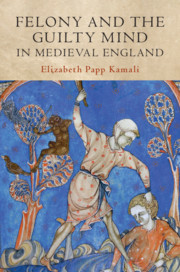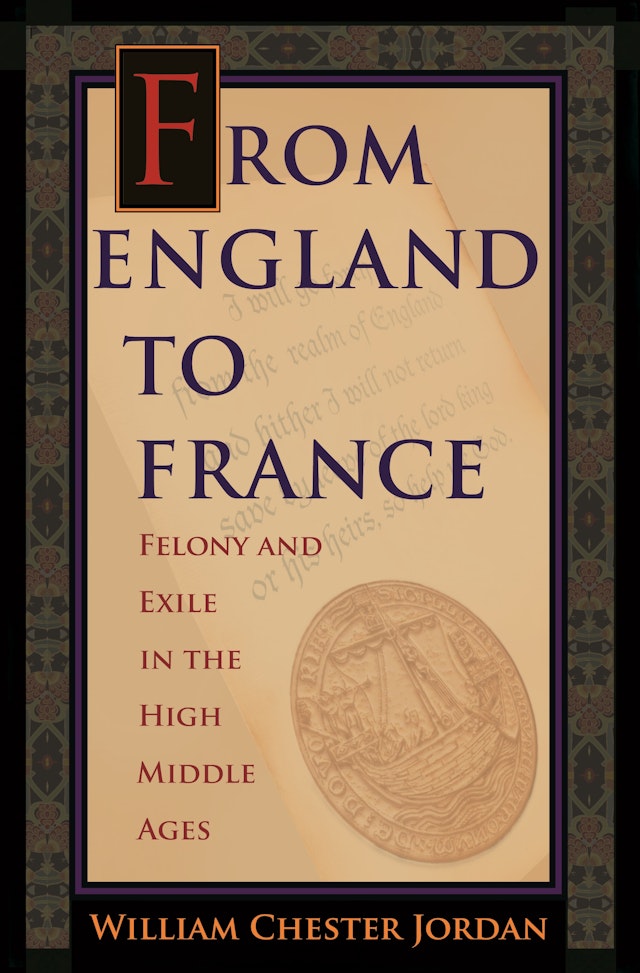Felony and the Guilty Mind in Medieval England by Elizabeth Papp Kamali
 This book explores the role of mens rea, broadly defined as a factor in jury assessments of guilt and innocence from the early thirteenth through the fourteenth century - the first two centuries of the English criminal trial jury. Drawing upon evidence from the plea rolls, but also relying heavily upon non-legal textual sources such as popular literature and guides for confessors, Elizabeth Papp Kamali argues that issues of mind were central to jurors' determinations of whether a particular defendant should be convicted, pardoned, or acquitted outright. Demonstrating that the word 'felony' itself connoted a guilty state of mind, she explores the interplay between social conceptions of guilt and innocence and jury behavior. Furthermore, she reveals a medieval understanding of felony that involved, in its paradigmatic form, three essential elements: an act that was reasoned, was willed in a way not constrained by necessity, and was evil or wicked in its essence.
This book explores the role of mens rea, broadly defined as a factor in jury assessments of guilt and innocence from the early thirteenth through the fourteenth century - the first two centuries of the English criminal trial jury. Drawing upon evidence from the plea rolls, but also relying heavily upon non-legal textual sources such as popular literature and guides for confessors, Elizabeth Papp Kamali argues that issues of mind were central to jurors' determinations of whether a particular defendant should be convicted, pardoned, or acquitted outright. Demonstrating that the word 'felony' itself connoted a guilty state of mind, she explores the interplay between social conceptions of guilt and innocence and jury behavior. Furthermore, she reveals a medieval understanding of felony that involved, in its paradigmatic form, three essential elements: an act that was reasoned, was willed in a way not constrained by necessity, and was evil or wicked in its essence.At the height of the Middle Ages, a peculiar system of perpetual exile—or abjuration—flourished in western Europe. It was a judicial form of exile, not political or religious, and it was meted out to felons for crimes deserving of severe corporal punishment or death. From England to France explores the lives of these men and women who were condemned to abjure the English realm, and draws on their unique experiences to shed light on a medieval legal tradition until now very poorly understood.
William Chester Jordan weaves a breathtaking historical tapestry, examining the judicial and administrative processes that led to the abjuration of more than seventy-five thousand English subjects, and recounting the astonishing journeys of the exiles themselves. Some were innocents caught up in tragic circumstances, but many were hardened criminals. Almost every English exile departed from the port of Dover, many bound for the same French village, a place called Wissant. Jordan vividly describes what happened when the felons got there, and tells the stories of the few who managed to return to England, either illegally or through pardons.


No comments:
Post a Comment